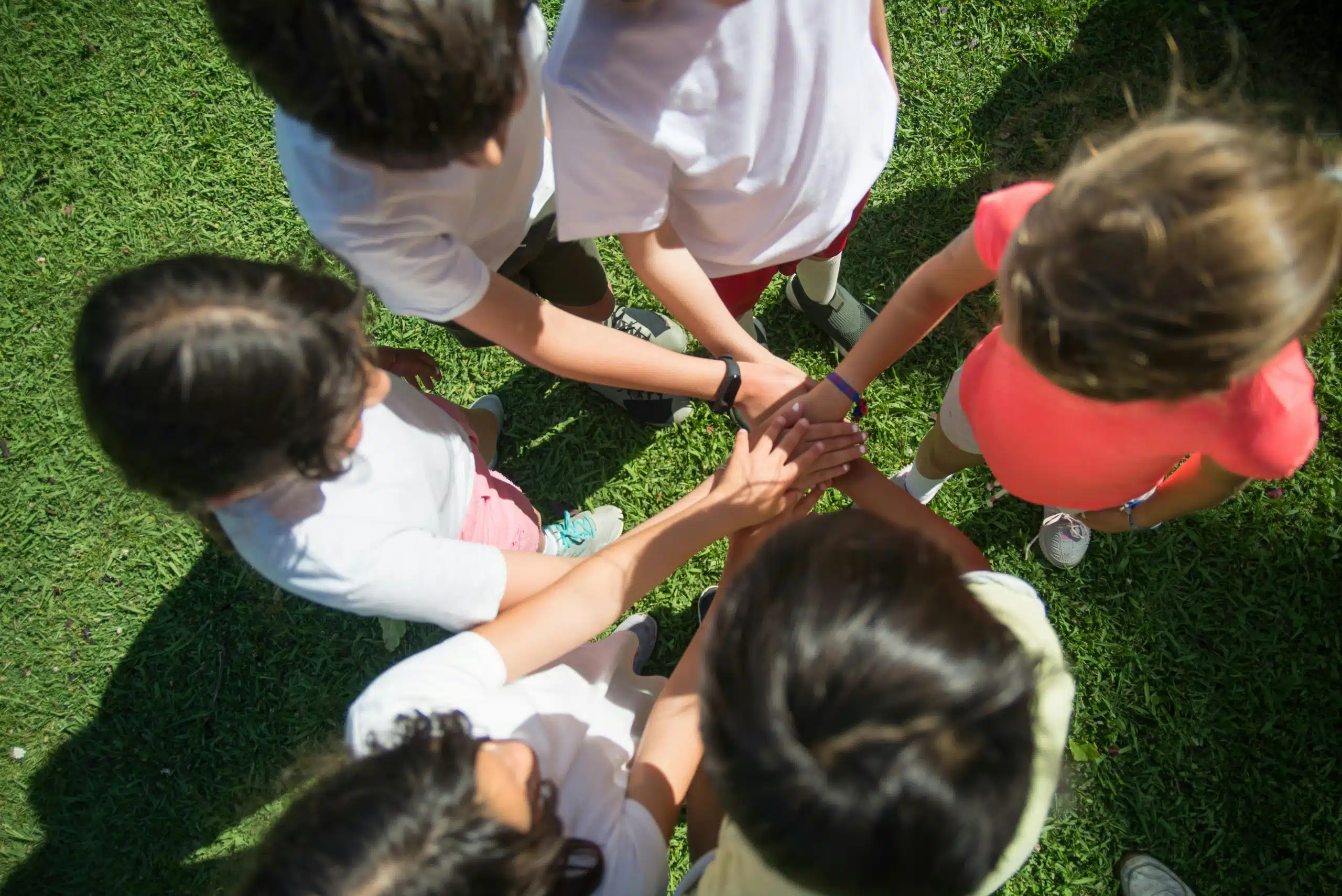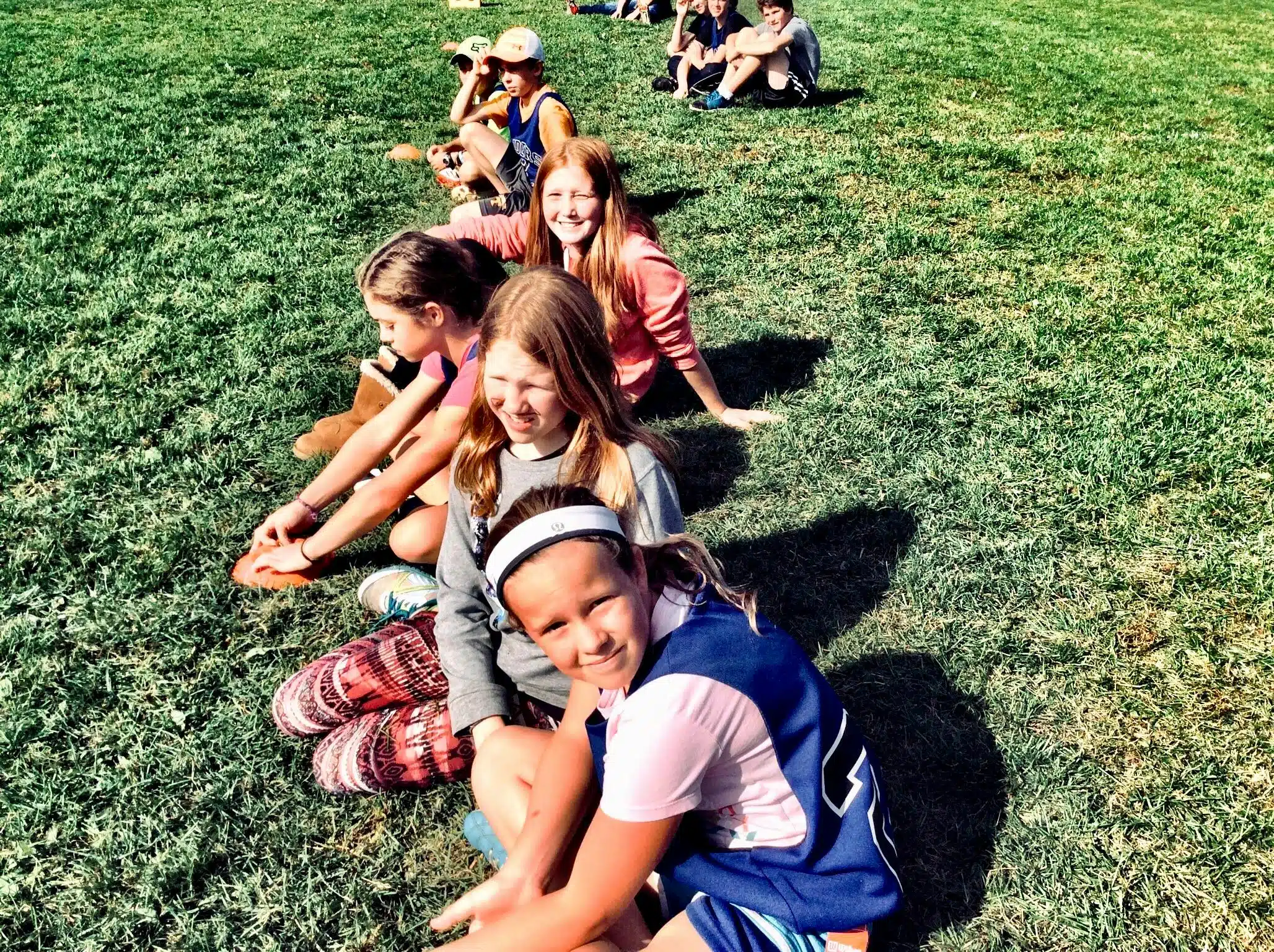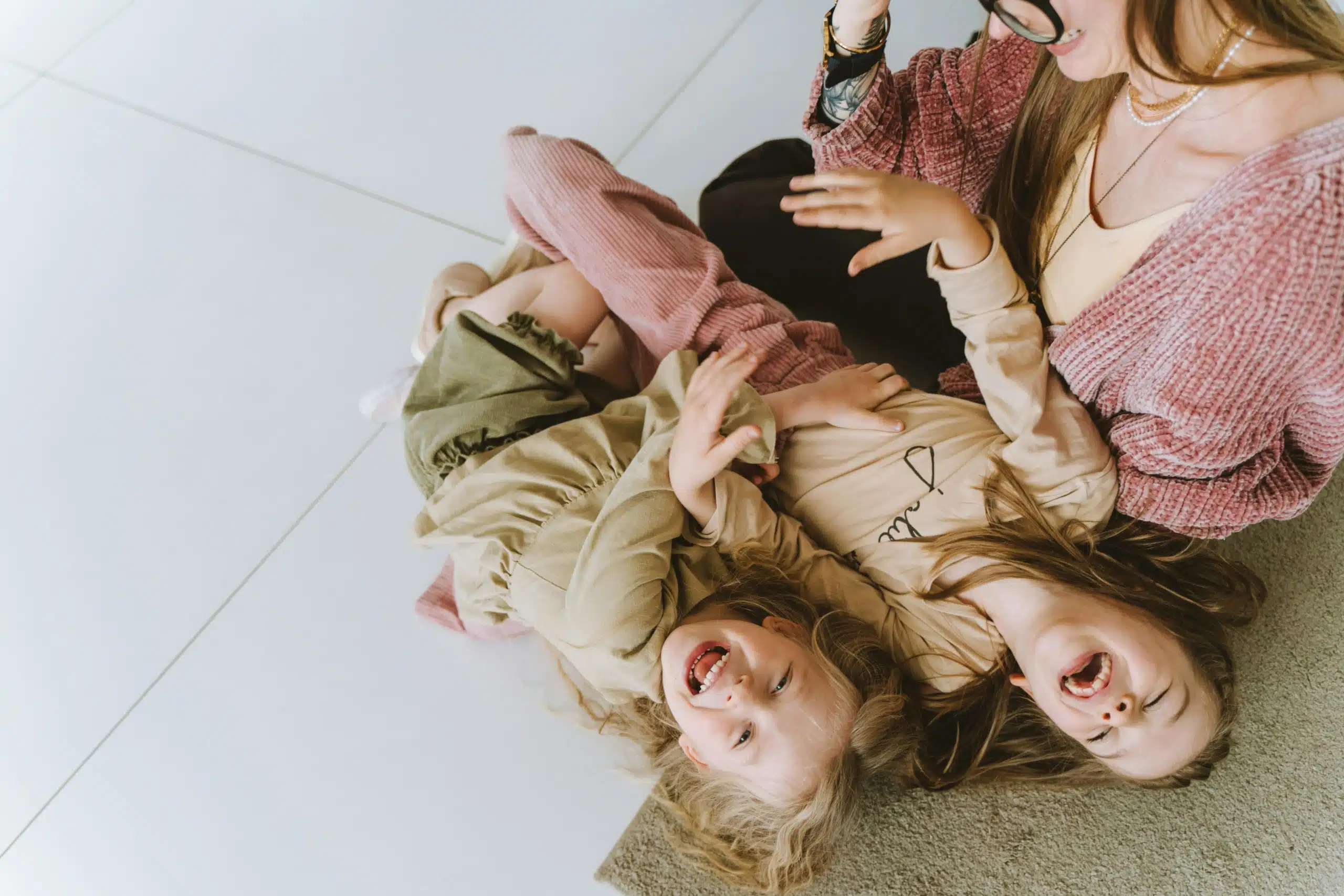School Friendships and Fallouts: Helping Your Child Navigate Social Ups and Downs
Julia Smith
Julia Smith
Up next
School friendships can often feel like a volatile rollercoaster ride.
Riding high and great fun one minute, gut-lurching and twisting and turning the next. As the year winds down and class (and school changes) are on the horizon, many kids are feeling the pressure. Plus, everyone is simply exhausted and ready for a long break. It’s no wonder that emotions run high in the playground.
You might notice your child talking about losing friends, feeling left out, or having more emotional reactions to minor fallouts. The good news? This isn’t failure… it’s all part of growing up. And with your calm support, your child can learn how to manage friendship changes with resilience and confidence.
Why Friendships Fallout (And Why That’s Normal)
During primary and early secondary school years, friendships are still very much under construction. Kids are learning vital emotional and social skills – like empathy, compromise, conflict resolution, and emotional expression.
According to the Raising Children Network, friendships at this age provide a foundation for belonging and emotional wellbeing… but they’re also a space for learning how to manage conflict and disappointment. (raisingchildren.net.au)
Some of the most common reasons for friendship fallouts include:
- Shifting group dynamics: Children’s interests, energy levels and social circles evolve. A friend your little one was glued to in Term 2 might now prefer someone else’s company… and that can hurt.
- Developing emotional intelligence: Many children are still learning how to express themselves, apologise, take turns or compromise… which can result in miscommunications or meltdowns.
- Big transitions: New classrooms, different teachers or even preparing for high school in 2026 can cause anxiety and changes in peer relationships.
- Outside influences: What children see on TV, YouTube or social media can shape how they view friendships and conflict resolution, and not always positively.
Sign up
Get tailored content based on your week of pregnancy
By signing up, you agree to receiving our Newsletters. Cancel anytime.



The End-of-Year Effect: Why Friendships Feel Harder in Term 4
By Term 4, most kids (and parents) are running on low batteries. With the build-up of a long year behind them, many children show signs of end-of-year fatigue — which can affect their social life too.
You might notice your child:
- Becoming more irritable or reactive with friends
- Expressing doubts about friendships they’ve previously loved
- Struggling to bounce back from typical playground disagreements
- Feeling clingier or more withdrawn
Fatigue makes everything feel bigger. A minor exclusion at lunch can feel like a major betrayal. Small changes in friendship groups can be taken to heart. Recognising that your child might be emotionally overloaded can help you respond with extra empathy, and not assume that all friendship hiccups mean something is deeply wrong.
How Parents Can Help
1. Listen First (Without Fixing)
The most powerful thing you can do? Be a safe space. Create moments in the car or at bedtime where your child can open up about their day without fear of judgement or overreaction.
Try asking:
- “What was something tricky about today?”
- “Did anything feel unfair or confusing?”
Avoid immediately offering solutions. Just being heard helps your child feel calmer and more in control.
2. Validate Their Feelings
Even if the issue seems minor to you, it feels real to them. Responses like “That sounds really hard” or “I can see that upset you” go a long way. Validation doesn’t mean agreement… It means acknowledging your child’s emotions.
This builds emotional literacy and makes them more likely to share again next time.
3. Guide Problem-Solving
Once your child feels heard, support them to think about what they could try next time. This fosters independence and resilience. You might say:
- “What would you like to do differently tomorrow?”
- “Is there someone else in class who makes you feel good to be around?”
You could even roleplay scenarios if they’re feeling nervous or unsure.
4. Model Healthy Friendships
Children learn from watching how adults handle disagreements, set boundaries and reconnect after conflict. If you’ve had a disagreement with a friend or partner, talk about how you worked through it.
The Smiling Mind Resilient Families Program highlights the importance of modelling emotional regulation and respectful relationships for our kids. (smilingmind.com.au)
5. Encourage Friendship Flexibility
Rather than focusing on one “best friend,” help your child see that friendships can come in different shapes, and that it’s OK to have different friends for different parts of life.
Get them involved in varied activities outside of school (like sport, Scouts, or art groups) where they can meet new peers and feel confident in other settings.
Friendship & Class Placements: Planning Ahead for 2026
As schools begin looking at class placements and teacher groupings for 2026, many parents are wondering: should I say something about my child’s social needs?
Here’s what to consider:
- If your child is deeply affected by a specific friendship (positively or negatively), it’s worth letting the school know.
- Many schools will allow parents to submit a written request for 2026 class placement preferences, including friendship support.
- Frame your request around your child’s learning and wellbeing, e.g., “My child thrives when placed with [Friend’s Name] as they feel socially safe and engaged.”
- Avoid criticising other children in your request — instead focus on your child’s needs.
If your child is currently experiencing friendship challenges, now is a good time to reflect on who they feel most supported by, and how that might influence their start to the new year.
When to Step In More Actively
While most friendship issues are normal, there are some signs your child might need extra help:
- Ongoing exclusion or persistent social anxiety
- Physical symptoms (like stomach aches or headaches) related to school stress
- Refusal to go to school or participate in social situations
- Talk of bullying, name-calling or being targeted regularly
If these occur, it’s time to speak with your child’s teacher, the school wellbeing team, or a school counsellor.
Sometimes the child can’t even articulate the reason they’re feeling anxious, angry or unwell. Watch to see if any of these symptoms or behaviours happen on certain school days or times eg. on after school care days.
You can also contact external services like:
- Kids Helpline: 1800 55 1800 or kidshelpline.com.au
- Raising Children Network: Helpful resources on emotional and social development
- Triple P – Positive Parenting Program: triplep-parenting.net.au
Wrapping Up
Friendships are one of the best, and the hardest parts of school life. From Swiftie style bestie bracelets to playground exclusions, the social world of children is ever-evolving.
But here’s what matters most: your child doesn’t need perfect friendships… they need skills, support and self-worth to navigate them. With your help, they can learn how to bounce back from fallouts, approach new friendships with curiosity, and develop social confidence that will serve them for life.
As the school year winds down and class placements are being decided, this is the perfect time to check in, reflect, and support your child’s social wellbeing. After all, relationships don’t just shape their school experience… they shape who they’re becoming.
Related Videos
Julia Smith
Follow +Julia is a Sydney born-and-raised mum of three girls. With over twenty years in the media industry, including four years with parenting publishers, she’s passionate about creating entertaining content that connects with parents. When she’s not working or parenting, you’ll find her binge watching TV and revenge-procrastinating about bedtime… or nerding out at gigs with her husband.











